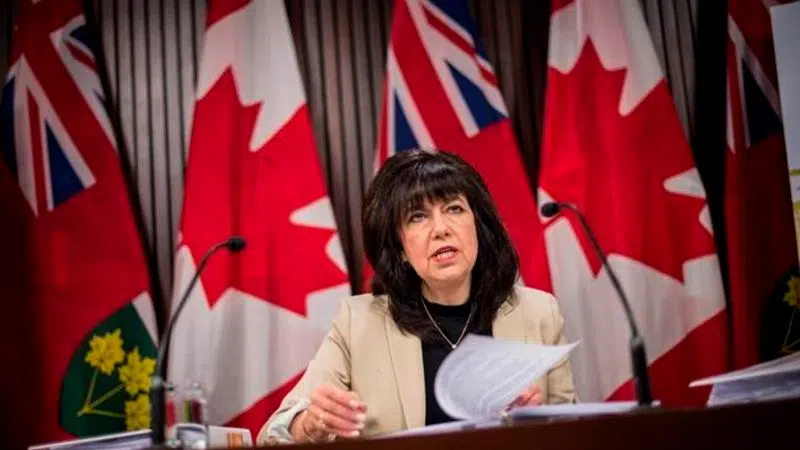
Ontario not on track to achieve 2030 emissions reductions targets: auditor
TORONTO — Ontario is unlikely to meet its 2030 emissions target under its current climate change plan — and Premier Doug Ford’s government knows it, the province’s auditor general said Wednesday in her annual report.
Bonnie Lysyk found a number of issues with the government’s “Made in Ontario” climate plan, which she said underestimated the starting point for emissions by including several green programs that were actually cancelled by the Progressive Conservatives after they came to power last year.
Some reductions in the plan were double-counted or overstated, while others weren’t backed up by policies to achieve those targets, she said.
“Our audit concluded that the emission-reduction estimates in the plan are not based on sound evidence or sufficient detail,” the report said. “In its current early state, the plan is not likely to achieve its proposed emission-reduction target.”


